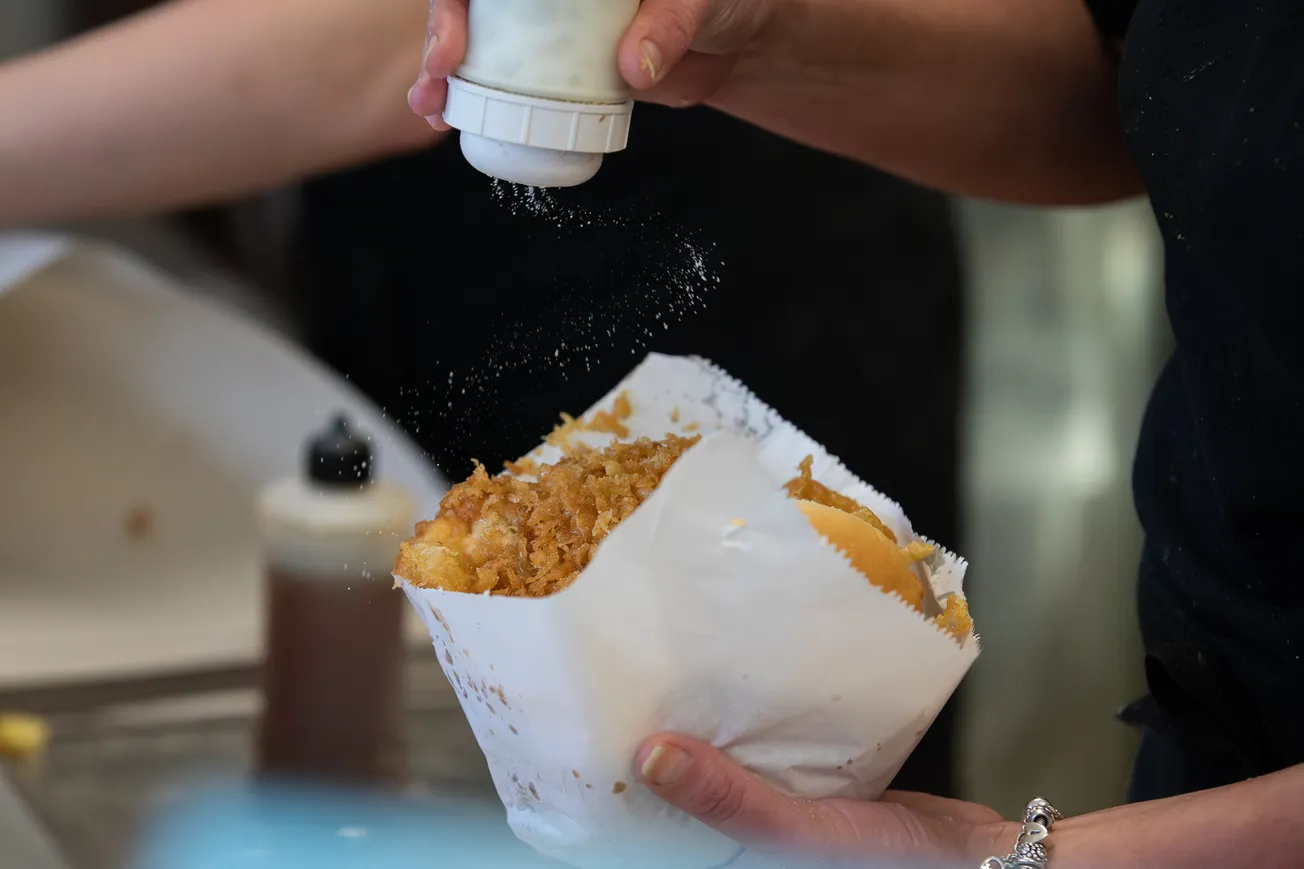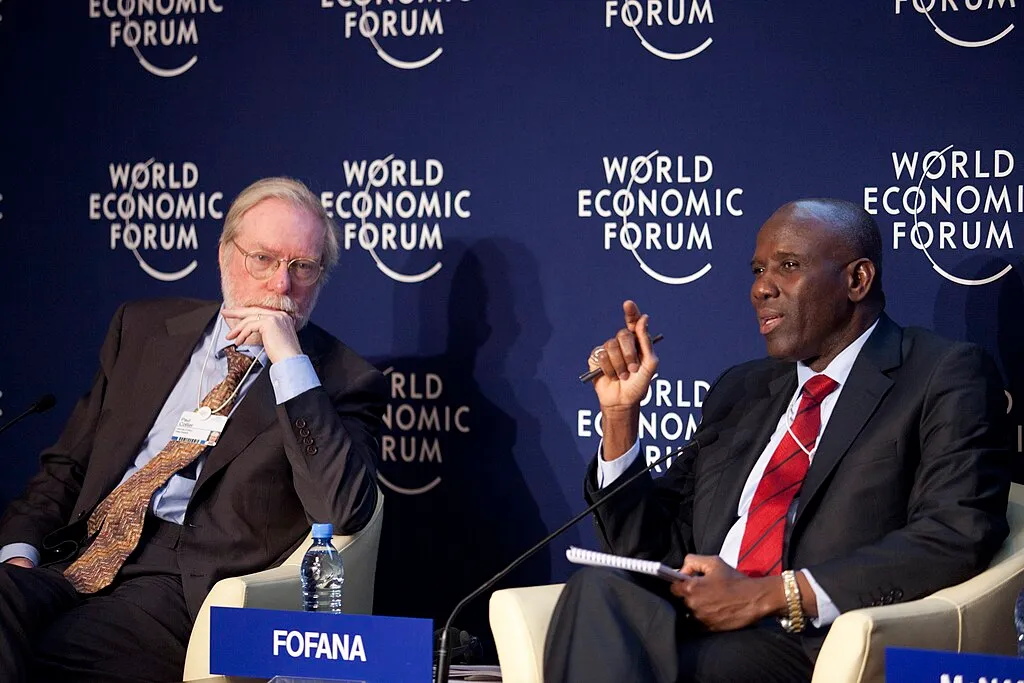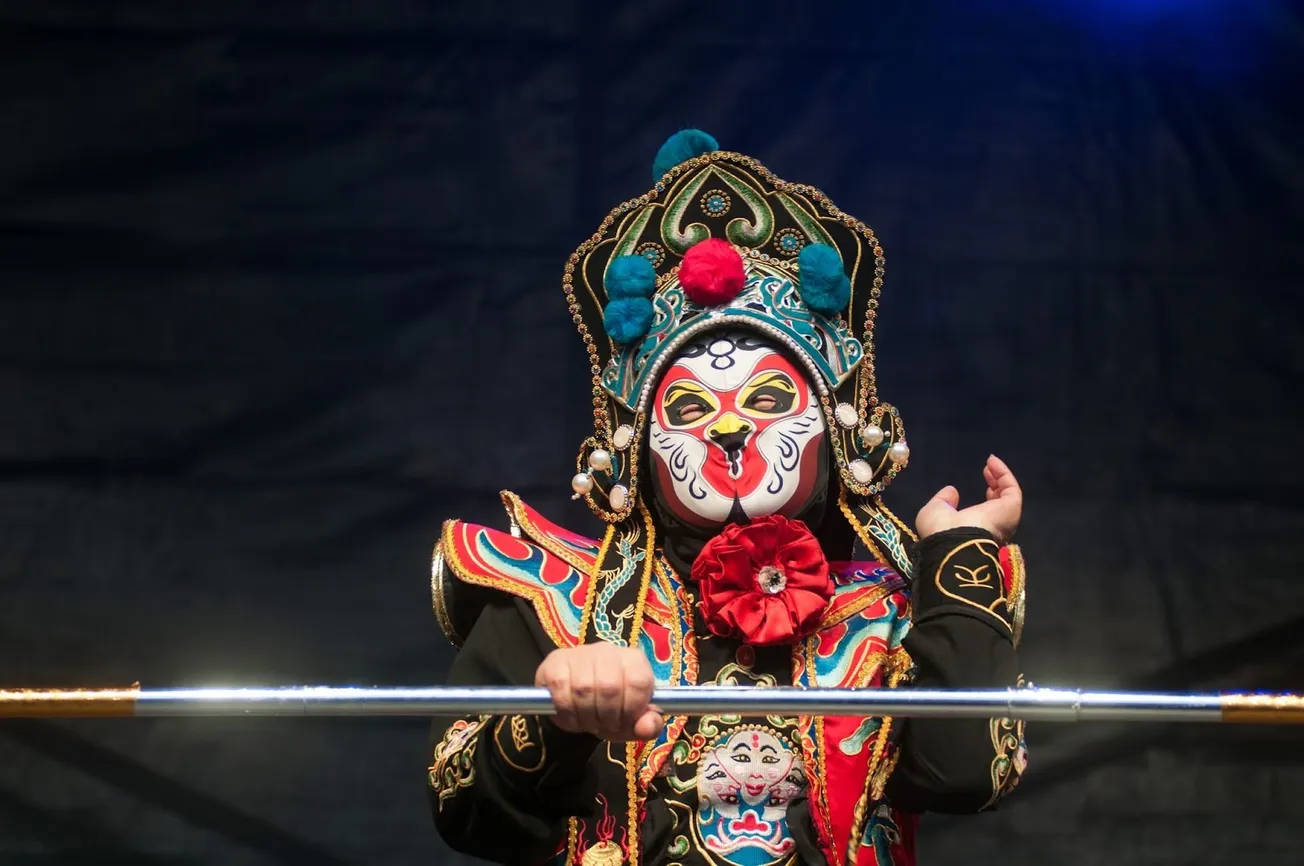by Jack Walton
“Come and get your roses, fresh roses from the villages!”
They call Peshawar, in Pakistan, “the City of Flowers”, and for all its sins — the condensed population, air heavy with vehicle pollution and military checkpoints every few miles — it’s a place rendered in technicolour. It’s full of street vendors and friendly faces, a city-sized bazaar, a place that Sanam Ara, who came to live in England in 2019, missed dearly. “My life in Peshawar was so social,” she tells me, “we would have people over to our house every day.”
From the moment Sanam moved to Sheffield, Peshawar existed for her in spirit only: in Whatsapp groups, in the Pakistani dishes she would cook up in her new kitchen — which, despite her best efforts, made for pale imitations of the originals. “English food,” she laughs, “it doesn’t really have the spice.” Sheffield, friendless and uninterpretable, was her reality.

“Very quickly I became crippled,” Sanam explains. She stopped leaving the house and became entirely reliant on her husband, who acted as an interpreter in day-to-day tasks. Supermarkets and doctor’s surgeries were a puzzle, but when it came to buses, she didn’t even bother, making it initially impossible to get to a mosque as there wasn’t one within walking distance of her house.
Sanam didn’t just miss Peshawar for the vibrancy and ease of the city compared to Sheffield, but for what she’d left behind. Back in Pakistan, she worked as a social worker for a non-governmental organisation where she fought for the rights of women and minorities; liaising with officials and organising press conferences and seminars. “In Pakistan minority communities are facing a lot of issues so I had a lot of responsibilities,” she tells me. “I was in the peak of my career.”
In 2017 Sanam married a man who was living in Sheffield and working as a care assistant in a mental health hospital. As she is Pasthun — a tribe with a rigid, conservative conception of gender roles — her in-laws were opposed to her job and she had to give it up. After a couple of years of living with them, she travelled to England to join her husband.
Chit chat
On a Friday morning in January, the white crucifix of Holy Cross Church looms over the boxy houses of Gleadless Valley. It’s quiet inside the church. Words are spoken as tentatively as feet reaching down towards pedals without the assurance of stabilisers.
Inside a group of five women are sat around a table, and two small children wander around them. They’re doing English lessons — today’s lesson seems to centre around the three women’s memories of their home country, the Democratic Republic of Congo (DRC). Often, when one of the women can’t articulate something in English, another will help translate and together they slowly unpick the sentences and words. They talk about the crops and the climate, and the differences between Sheffield and the DRC.
Vocabulary is written out on sheets of flipboard paper, and one of the volunteers has printed out pictures of landscapes from different countries to help with the lesson. It was at one such session that Sanam’s life in the UK began to turn a corner.

“My confidence level had reached zero and I was becoming more and more depressed. I was wondering what my future would look like in the UK,” she explains. “So one day I decided to focus all my energy on good things.” She signed up with the Sheffield Association for the Voluntary Teaching of English, or SAVTE, in January 2020 and attended a few conversation classes in person before they moved online because of the pandemic. As her English began to improve, her teacher advised her to join the organisation as a volunteer — working in the office in an admin role.
Stella Burton, CEO of SAVTE, noticed Sanam’s skillset and advised her to also join a community development and health course, which she still takes weekly. Stella believes that beyond the barbed wire fences, mountain ranges, plane rides and stormy seas, is another, invisible obstacle: language. “We have huge amounts of professional experience coming into our society but they get relegated because they have the label refugee,” she tells me. “There’s so much more we need to do to transfer people’s skills.”
This is the SAVTE modus operandi — bringing out potential that gets trapped behind the communication barrier. Whilst ostensibly a language-based organisation, it functions more broadly and language is only one element. For example, through the pandemic SAVTE were one of a number of voluntary organisations going into migrant hotels to support those housed there.

“The staff in the hotels were brilliant,” Stella tells me. Voluntary sector workers rose to the challenge, providing activities like football and games, and SAVTE provided English conversation. Given the horror stories of squalor elsewhere, this is refreshing to hear, though Stella clarifies that the very concept of a migrant hotel does not sit well with her.
Unfortunately for SAVTE, the pandemic (coupled with Brexit and other budget cuts) has had a far greater bearing on the organisation than simply having to work in makeshift hotel-classrooms. “We’re in a precarious funding situation now,” Stella says gravely. The model they use — one worker training 20 volunteers who in turn supports 20 learners — has been stretched and has left a growing waiting list.
With the adult education budget now run via the mayoral combined authorities as part of the government’s broader devolution plans, Stella believes another layer of bureaucracy has been created, leading to a buffer between them and funding. The combined authority focuses its skills budget on training that’s closely linked to employment, meaning less funding for programmes like SAVTE, which are helping people with more foundational skills.

“Us and a few other voluntary sector organisations in Sheffield have suddenly found ourselves in a position where the money we were expecting has been diverted into education-outcome based learning,” Stella tells me. This type of traditional classroom-style teaching with a marked endpoint is also important, just different, she says. What SAVTE offers — helping people take their first steps in British society via a more personal approach — has been pushed to the back of the queue.
80% of their referrals come from council services, which do not pay. Stella is currently in communication with the council to find a solution, as well as looking at re-organising the programmes in order to “jump through hoops” — but the current figures don’t look good.
She needs about £300,000 a year to keep the programme running as it is. The core council grant is £35,000, leaving a huge gulf to make up. The adult education budget used to be £60,000, this year it was £18,000. The Asylum, Migration and Integration Fund (available to EU member states) used to grant £50,000, but this will no longer be available to the UK from December. Grant funding is also being slashed, as so much has been spent to help organisations survive through the pandemic. Recently, Stella went to the lottery and asked for half a million. The response: “halve it.”
“Like a family”
Before it even had its name, SAVTE began as a home learning project in the 1970s. Yemeni workers who had migrated to Sheffield to work in steel were unable to attend English classes due to their shift patterns, so other steelworkers began going into their homes to run DIY language crash courses. In that sense, it provides an almost utopian model — ordinary people stepping up in response to a need. “There are similar projects around the country now but it really began here in Sheffield, so it says a lot about the people here,” Stella tells me.
A few years ago, Stella picked up the phone from a number she didn’t recognise and a Yemeni man was on the line. He said that when he was a child, a SAVTE volunteer helped his mum learn English. He explained that their kindness had helped her become more confident and independent as she had been struggling in England. Where she was previously unable to leave her home, not unlike Sanam nearly half a century later, she began to go out and embrace a new country, which had the domino effect of improving his own life. “I want to give back now,” he told Stella, and offered his services as a volunteer.

The journey of SAVTE — from the Yemeni man whose mother was empowered in the early 1970s through to Sanam in 2022, in many ways reflects changes in both Sheffield and Britain as a whole. “We’ve evolved over time against the changing needs in the city,” Stella says. They now run bespoke training programmes to help their volunteers to work with people experiencing PTSD or trauma. Many learners are victims of human trafficking, have fled wars or have spent time in migrant camps.
They also offer specialised help for women raising children who can’t get to classes, which involves volunteers going into the home running “English with your child” lessons and parenting-related programmes. Digital inclusion and IT courses are also increasingly important.
Sanam’s improved communication skills have helped her to build a friendship with her neighbours. She had always suspected they were “lovely people,” but actually being able to understand them has confirmed those suspicions. They bring round cake, croissants and Yorkshire puddings in an attempt to diversify her culinary repertoire, but Sanam insists Pakistani food remains in a league of its own. Nothing in England holds a candle to Peshawari kebabs, unfortunately.

On the first day of her volunteering, her manager took Sanam to the bus stop and guided her through the many perils of Sheffield’s public transport system. This was an especially important hurdle of UK culture as it now means she can attend the mosque without the assistance of her husband.
The Sheffield twang has made the already challenging job of interpretation even harder, but she’s slowly getting used to it and settling into the role of adopted Northerner. “The people of Sheffield, they are so lovely, but they speak so fast,” she laughs. Even the dreary grey winter nights, rain and cold (for comparison, Peshawar sees highs of 40°C in summer and averages around 20°C even through winter) have become bearable, if only just.
“When I first came to the UK I couldn’t speak a single sentence confidently,” she says, almost emotionally. “But SAVTE has been like a family and now all my fears are gone.” She looks forward to returning to Peshawar this year, perhaps in a few months — visiting her friends, her family, and enjoying a Biryani with a sufficient chilli count. But this time, when she gets back on the plane to Sheffield, she’ll have a life to look forward to on the other side.

Comments
How to comment:
If you are already a member,
click here to sign in
and leave a comment.
If you aren't a member,
sign up here
to be able to leave a comment.
To add your photo, click here to create a profile on Gravatar.







